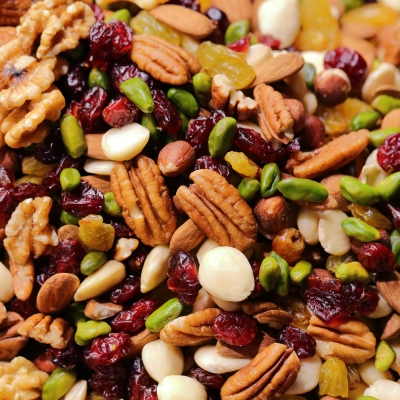Japan-based researchers shed new light on how short-chain fatty acids (SCFAs) — produced from dietary fiber by gut bacteria — regulate the immune system by interacting with mast cells. This white blood cell type plays a central role in allergic reactions. The team notes that its insights could lead to innovative and effective anti-allergy medications, supplements and diets.
Mast cells are loaded with granules — tiny sacs of enzymes and signaling molecules, such as histamine. When a mast cell detects an antigen, it activates and undergoes degranulation, releasing these substances to nearby tissue to trigger a fast immune response. The cells also play a central role in allergic diseases, such as pollinosis — an oral allergy syndrome caused by allergens found in pollen and food — and severe food allergies.
The researchers note that their findings can help scientists navigate how human bodies regulate the immune system with the help of gut bacteria. Moreover, the research may have implications for people with allergies.
“The activation of mast cells is a common cause of various allergic diseases and not limited to anaphylaxis,” says lead author professor Chiharu Nishiyama from Tokyo University of Science, Japan.
“In addition, I think that the increasing frequency of allergic patients is associated with changes in diet in these decades. Allergies are so common that one in two Japanese people is said to have some allergic disease, and the results of our study showcase dietary fibers as an effective way of treating them.”
Mechanisms of action
In the study, published in The Journal of Immunology, the research team fed mice with butyric acid and valeric acid — two representative SCFAs. These significantly repressed a type of well-researched allergic reaction induced in laboratory settings. Moreover, the research reveals that treating mastic cell cultures with different SCFAs suppresses Immunoglobulin E (IgE)-mediated activation, a crucial pathway in allergic reactions.
The research reveals two ways in which SFCAs mediate mast cell activation. Binding to a protein receptor for SCFAs (GPR109A) starts a chemical cascade that results in the creation and secretion of prostaglandins. These lipid compounds interact with EP3 receptors in mast cells and prevent degranulation. As a result, prostaglandins help to limit the release of histamine and minimize allergic responses.
The second pathway involves epigenetics — SCFAs affect histone deacetylase inhibitory activity, which regulates epigenetic modifications. This process led to changes in IgE receptor expression, inhibiting degranulation in mast cells.
Dietary fibers, found in wholegrain cereals, fruits and vegetables, are broken down into SCFAs in the gut.Additional experiments suggested that non-steroidal anti-inflammatory drugs suppress the anti-allergic effects of SCFAs. Moreover, the team suggests that vitamin B3 inhibits mast cell degranulation by interacting with the GPR109A receptor.
No products found.
“It is important to demonstrate with scientific evidence how dietary conditions affect health,” underscores Nishiyama. “This research has revealed part of the complex regulatory mechanisms involving various food-related components, including dietary fiber, SCFAs, polyunsaturated fatty acids and vitamins.”
The team aims to further research the relationship between the mucosal environment and immunoregulation by focusing on specific SCFAs, which they hope will uncover the health benefits of various food sources.
SCFAs in the gut
Research on SCFAs is expanding, examining various anti-inflammatory and immunomodulating effects. SCFAs are produced in the gut by breaking dietary fibers into small molecules.
Earlier this year, Verdure Sciences detailed how its pomegranate extract (Pomella) significantly improved gut and mitochondrial health markers. A human clinical study identified that Pomella supplementation augmented circulating SCFAs through modulation of the gut microbiome, suggesting that the supplement supports healthier gut-body communication.
Meanwhile, research indicates that consuming high-dose dietary prebiotics may alter food decision-making in overweight adults by reducing reward-related brain activation in response to high-calorie food. After prebiotic consumption, the researchers found increased SCFA-producing Bifidobacteriaceae in stool samples.
No products found.
Moreover, Yakult Europe hosted a symposium for experts to present research findings on the link between gut health and mental well-being, indicating that SCFAs are pivotal to the mechanisms that can improve mental health.
Researchers note that specific bacterial genes in fresh produce are involved in SCFA production, calling for increased fruit and vegetable consumption, as they link this to bacterial diversity in the gut microbiome.

